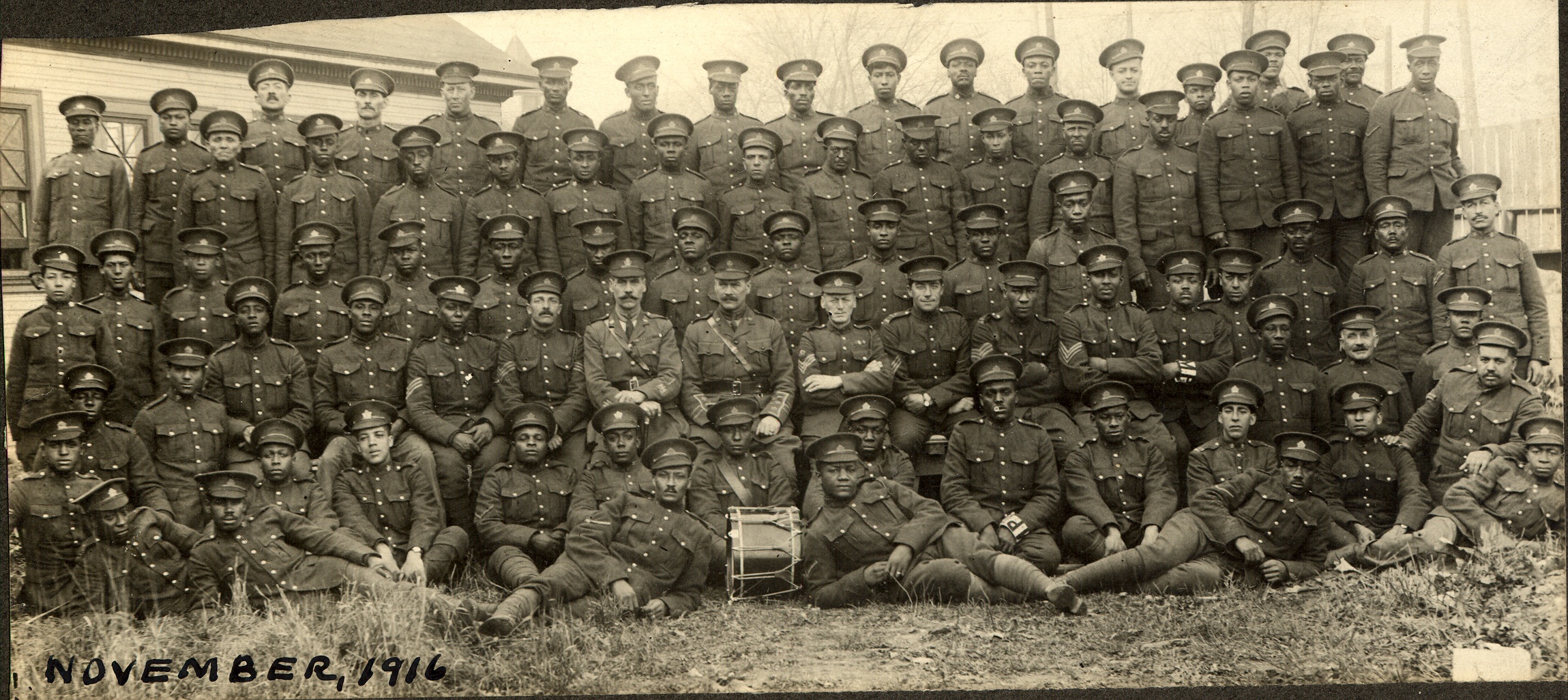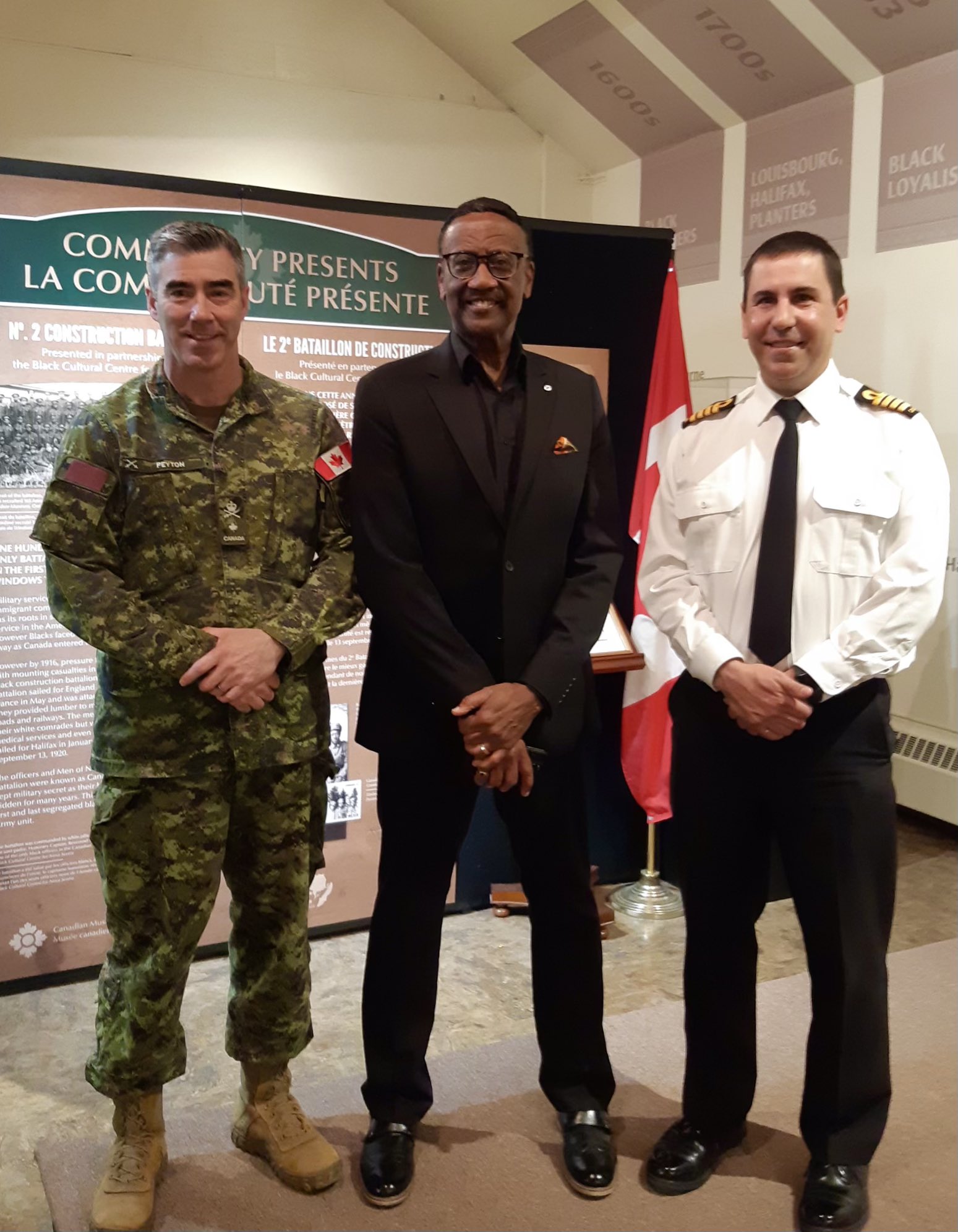
BLACK CULTURAL CENTRE FOR NOVA SCOTIA
National apology to Black Battalion carries significance for all Canadians
Par Joanie Veitch,
Équipe du trident
On July 9, the Government of Canada will make a formal apology for the mistreatment of the No. 2 Construction Battalion — Canada’s only all Black unit to serve during the First World War — in Truro, NS, on the same grounds where the members of the “Black Battalion” trained.
In preparation for that historic event, the Maritime Forces Atlantic (MARLANT) Defence Visible Minority Advisory Group (DVMAG) hosted an afternoon presentation at the Black Cultural Centre for Nova Scotia, including a tour of the Centre’s exhibit on the battalion and a talk by Douglas Ruck, a labour and human rights lawyer and son of the late senator Calvin Ruck, who wrote a book on the No. 2 Construction Battalion.

5TH CANADIAN DIVISION
“This apology is important, it marks an important point in history… this is not just Black history, it’s Canadian history,” said Douglas Ruck.
When the First World War broke out in 1914, hundreds of Black men were ready to sign up. While the recruiting slogan was “one mind, one heart”, the reality those men met at the recruiting stations told a different story.
“It soon became obvious that they also wanted men to be of one colour… it was a white man’s war,” Ruck said.
The men persisted and finally, on July 5, 1916, the No. 2 Construction Battalion was established in Pictou, NS. The unit was moved to Truro for training and by the time the battalion set sail for Europe from Halifax — on March 28, 1917 on the SS Southland — more than 600 Black men had volunteered for service. Most of the volunteers were from Nova Scotia although the battalion also had recruits from Ontario and Western Canada, the United States, and even some from the British West Indies.
Deployed under the command of white officers, the No. 2 Construction Battalion was a non-combatant unit and provided a support role, such as digging trenches, repairing railways and establishing logging roads.
Members of the unit endured racism at every step of the way, Ruck said, and when they returned home, their efforts were largely ignored, with the exception of a commemorative plaque placed in the Ontario legislature in 1920. “They came back to obscurity and would have been forgotten if not for my father’s book.”
Ruck’s father, Calvin Ruck, first heard about the battalion when he was working as a railway porter and saw some of the other Black porters wearing a lapel pin, denoting them as members of the No. 2 Construction Battalion.
“My father was a man who loved history and he made up his mind at that point that he would someday set down their story. He was determined,” Ruck said.
Work and family obligations meant it would take him a few decades, but in 1987, after years of interviewing members of the battalion and their families, Calvin Ruck published The Black Battalion 1916-1920: Canada’s Best Kept Military Secret. The book marked a turning point in the battalion getting some much-deserved recognition.
On July 4, 1992, the creation of the Black Battalion was recognized as a national historic event, and in 1993 a granite monument commemorating the unit was erected in Pictou, NS, where the battalion was first established.
After it was announced in March 2021 that Canada would make an official apology to the relatives and descendants of the members of No. 2 Construction Battalion, the National Apology Advisory Committee — created by the Black Cultural Centre in partnership with the federal government — began meeting with people from across the country.
“The goal is to make this wrong… right, as best as we possibly can,” Ruck said. “This apology is a significant event. For all of us, every Canadian.”The national apology will be held on July 9 in Truro. On July 7, a new interpretive display will be opened at the Black Cultural Centre, in Cherry Brook, NS. Both events will also be streamed online at www.no2-cef.ca.





